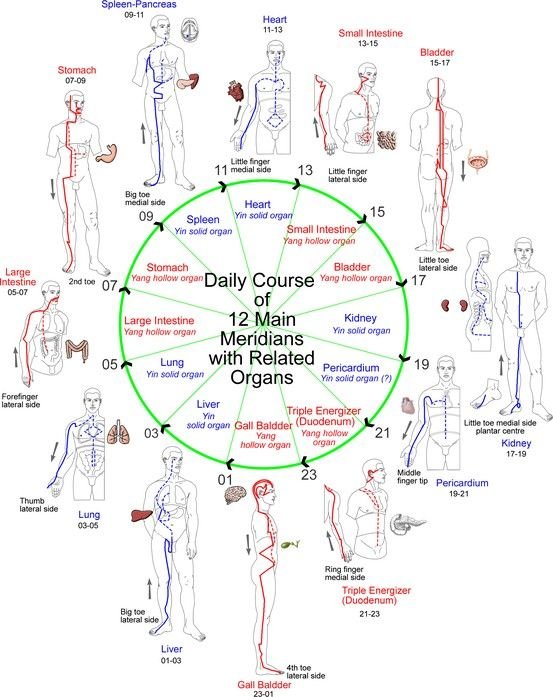Energy psychology is a rapidly evolving field that combines the principles of psychology with theories of energy medicine, drawing on ancient traditions as well as emerging scientific understandings of human health.
Central to energy psychology is the concept of – pathways in the body through which vital energy, or “qi” (pronounced “chee”), is believed to flow. Understanding body meridians is crucial for practitioners and individuals seeking alternative therapies for emotional and psychological issues.
This article will delve into the basics of body meridians, their historical context, the principles of energy psychology, the benefits of these practices and a review of research statistics that support their efficacy.

Understanding Body Meridians
1. The Concept of Meridians
In traditional Chinese medicine (TCM), meridians are channels that run throughout the body.
These channels connect different organs, tissues, and systems, allowing for the flow of energy. There are twelve primary meridians aligned with the major organs and two additional meridians known as extraordinary vessels. Each meridian corresponds to specific physical and emotional states and blockages or imbalances in these pathways can lead to health issues.
2. History of Meridians
The concept of meridians dates back thousands of years to ancient Chinese medical texts.
The Huangdi Neijing, or “Yellow Emperor’s Inner Canon,” is one of the earliest texts to describe these pathways. The significance of meridians lies in their connection to the balance of yin and yang, the two fundamental forces that define the natural world in Chinese philosophy.
3. The Role of Qi
Qi is the vital life force that flows through the meridians. It is fundamental in TCM and is believed to influence a person’s health and emotional well-being. When the flow of qi is unobstructed, the body maintains harmony; however, when blockages occur, it can lead to physical dysfunction and emotional distress. Techniques such as acupuncture, acupressure and qigong are employed to restore the smooth flow of qi through the body’s meridians.
Blocked Meridian Symptoms
The flow of Qi, or life force, through the meridians is essential for maintaining physical, emotional, and spiritual health. When this flow is disrupted, it can lead to both acute and chronic health issues.
Causes of Disrupted Flow
Ideally, the flow of Qi would remain unobstructed. However, external factors such as stress, poor diet and injury can cause blockages in the meridians, leading to imbalances in energy flow.
Identifying Blockages
Blockages in the meridians can manifest as various symptoms. Here are the symptoms associated with blockages in the 12 primary meridians:
Lungs
Physical: Sweating, coughing, inflammation, skin problems
Emotional: Feeling isolatedLarge Intestine
Physical: Abdominal pain
Emotional: Inability to let go of thingsSpleen
Physical: Bloating, diarrhea, fatigue, loss of appetite, muscle weakness
Stomach
Physical: Digestive issues
Emotional: Worry, nervousness, lack of acceptanceHeart
Physical: Palpitations, hot flashes, cold sweats, dizziness, chest pain, shortness of breath, insomnia
Emotional: Irritability, sorrow, psychological issuesSmall Intestine
Physical: Poor digestion, skin problems, swollen lymph nodes, leg weakness, feeling cold
Kidneys
Physical: Sexual and urinary problems, asthma, back pain
Emotional: Difficulty coping with lifeBladder
Physical: Urinary diseases, backache, stiff shoulders
Emotional: Inability to express emotionsPericardium
Physical: Red eyes, spasms in elbows, arms, and feet, chest pain
Triple Warmer
Physical: Hearing disabilities, breathing problems, fatigue, urinary problems
Liver
Physical: Menstrual problems, jaundice, skin problems, joint pain, dry eyes, headache
Emotional: Depression, moodiness, temper, inability to control lifeGall Bladder
Physical: Liver issues, bloating, yellow skin or tongue
Energy Psychology: An Overview
1. Defining Energy Psychology
Energy psychology is a therapeutic approach that utilizes techniques related to the body’s energy system. These methods can include tapping into meridian points, visualizations and various psychological interventions to help individuals release emotional distress, fears and anxiety.
Energy psychology emerged as a bridge between traditional psychological practices and alternative medicine, creating a holistic approach to healing.
2. Key Techniques
Emotional Freedom Techniques (EFT):
A form of tapping therapy that involves tapping on specific acupressure points while voicing negative emotions or issues. It’s designed to alleviate psychological distress by balancing energy.Thought Field Therapy (TFT):
Developed by Roger Callahan, TFT focuses on addressing psychological issues by tapping on specific meridian points based on the individual’s specific problem.Psychological Kinesiology (PK):
This approach integrates muscle testing with emotional issues to identify energy imbalances that are at the root of psychological challenges.
Benefits of Energy Psychology
Emotional Balance
Energy psychology techniques have been shown to help individuals achieve emotional balance. By tapping into the meridian pathways, practitioners can facilitate the release of negative emotions linked to trauma, anxiety, and stress.
Stress Reduction
Numerous studies have indicated that energy psychology can significantly reduce stress levels. For example, EFT has been linked to decreased cortisol levels and reported feelings of relaxation in participants.
Improved Mental Health Outcomes
Practitioners report that combining energy psychology with traditional therapies enhances the treatment of conditions such as PTSD, depression and phobias. Many patients have noted more significant improvements in emotional well-being when incorporating energy-focused techniques.
Enhanced Coping Mechanisms
Individuals using energy psychology techniques often develop better coping mechanisms for managing life’s challenges. This empowerment can lead to improved resilience and overall life satisfaction.
Increased Self-Awareness
Energy psychology promotes self-awareness as individuals are guided to identify and confront negative beliefs and emotional blockages. This process allows for personal growth and an understanding of how emotions affect thoughts and actions.

Research Statistics Supporting Energy Psychology
Efficacy of EFT
A meta-analysis published in the Journal of Evidence-Based Integrative Medicine examined multiple studies on the efficacy of Emotional Freedom Techniques. The analysis found that EFT was effective in reducing anxiety, depression and PTSD symptoms.
The average effect size was found to be moderate to large, especially for reducing symptoms of anxiety and PTSD.
Trauma and PTSD
A study published in Traumatology provided data from military veterans who underwent EFT treatment for PTSD. Results showed a 50% reduction in PTSD symptoms, and many participants reported significant improvements in overall emotional well-being.
Stress Response
Research published in the International Journal of Stress Management highlighted that participants practicing energy psychology techniques, particularly EFT, had significantly lower cortisol levels and self-reported stress compared to control groups.
Anxiety Treatment
A study in the Journal of Health Psychology compared EFT with traditional cognitive-behavioral therapy (CBT) for anxiety relief. Results indicated that while both were effective, EFT led to quicker reductions in anxiety levels, suggesting that it could be a beneficial complementary option for patients seeking relief.
Long-Term Effectiveness
A longitudinal study assessing EFT’s long-term effects found that participants maintained lower anxiety and depression scores several months after therapy completion, indicating sustained benefits from energy psychology methods.
Conclusion
As we explore the intricate relationship between body meridians and energy psychology, it becomes evident that these systems offer valuable insights and techniques for emotional and mental health.
The historical context of meridians, rooted in thousands of years of philosophy and practice, lays the foundation for energy psychology methods that integrate these ancient concepts with modern therapeutic approaches. The evidence gathered through various studies and anecdotal testimonials reinforces the significant benefits of employing energy psychology techniques, particularly for emotional balance and stress reduction.
In an era where mental health is gaining recognition as a vital aspect of overall well-being, energy psychology stands out as an innovative field bridging the gap between traditional healing and contemporary psychological practices. As research continues to validate these approaches, practitioners and individuals alike can look forward to harnessing the potential of body meridians and energy psychology to enhance emotional resilience and support mental health.
This exploration urges us to consider the interconnectedness of mind and body and the powerful pathways through which we can heal, grow, and thrive.

